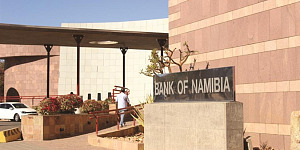 Namibia's (Baa3 stable) small but diversified economy, strong growth record and responsible government budget management underpin its rating, Moody's Investors Service says today in its annual Credit Analysis for the country.
Namibia's (Baa3 stable) small but diversified economy, strong growth record and responsible government budget management underpin its rating, Moody's Investors Service says today in its annual Credit Analysis for the country.
The Moody's report is available now on www.moodys.com. Moody's subscribers can access this report via the link provided at the end of this press release. The report is an update to the markets and does not constitute a rating action.
Namibia's abundant natural resources, infrastructure investment and developments in the mining sector support its favourable near-term growth prospects, while government deficits have been moderate. "The government has a track record of prudent debt management and has adequate debt recording systems," says Kristin Lindow, Senior Vice President and a co-author of the report. "Continued fiscal restraint should help ensure that government debt and debt service remain at manageable levels."
Other factors that support Namibia's rating include its low susceptibility to political and financial risk and its currency peg to the South African rand, which fosters economic and financial stability.
The rating could be upgraded if the government can maintain public debt levels, while also cutting unemployment and narrowing income equality. Continued forward-looking management of natural resource income and monetary stability will also be important factors.
The mining sector has largely underpinned Namibia's economic expansion since independence in 1990. However, Namibia is a relatively diversified economy and the government has made progress in broadening the economy, including plans to make the country a regional logistics hub.
Namibia's credit challenges include its reliance on the sale and export of raw and semi-processed minerals, especially diamonds and uranium, for foreign exchange earnings. This exposes Namibia to volatile commodity prices. The country also faces challenges in reducing unemployment and poverty.
The rating could be downgraded if the budget deficit and government debt levels were to increase sharply, without reaping benefits in terms of job creation or the expansion of infrastructure capacity. Any government policies that deter investment and reduce the potential for economic growth and increased government earnings would also exert downward pressure on Namibia's rating.





















































